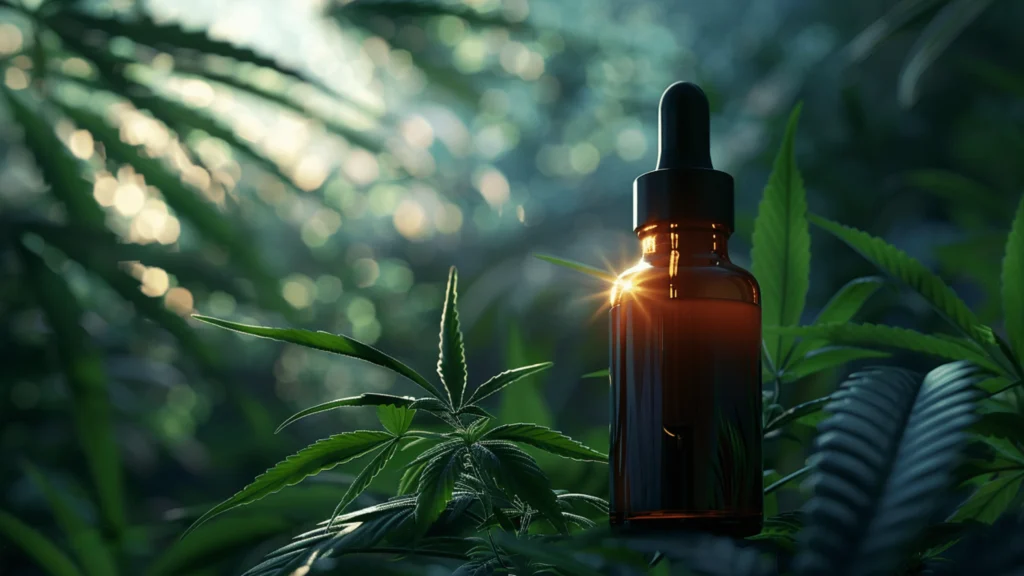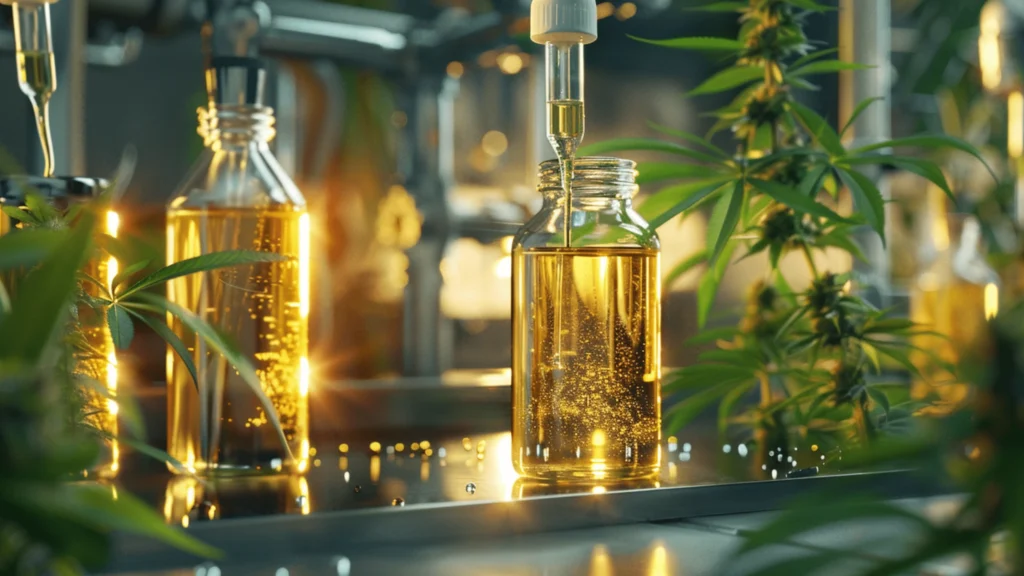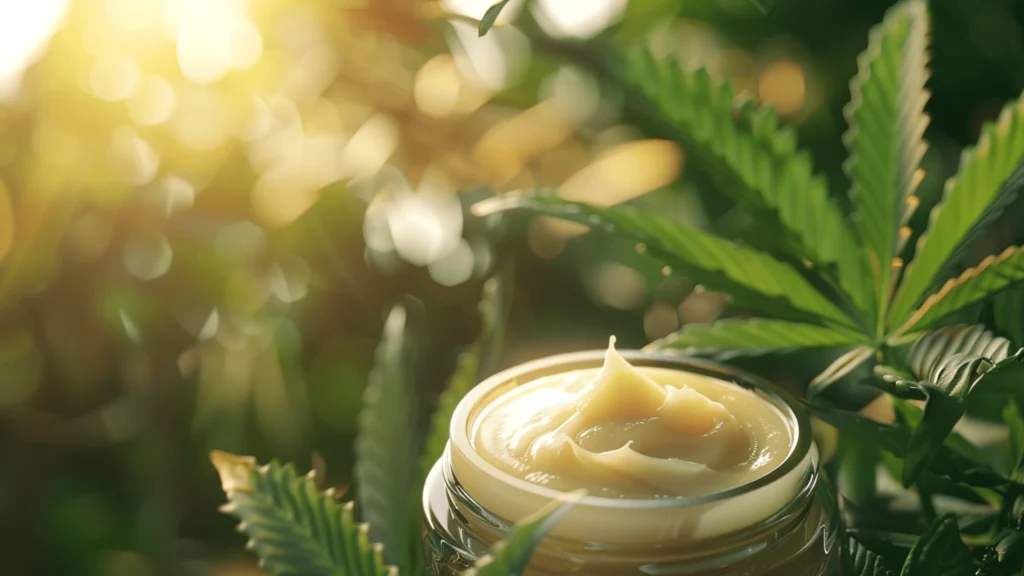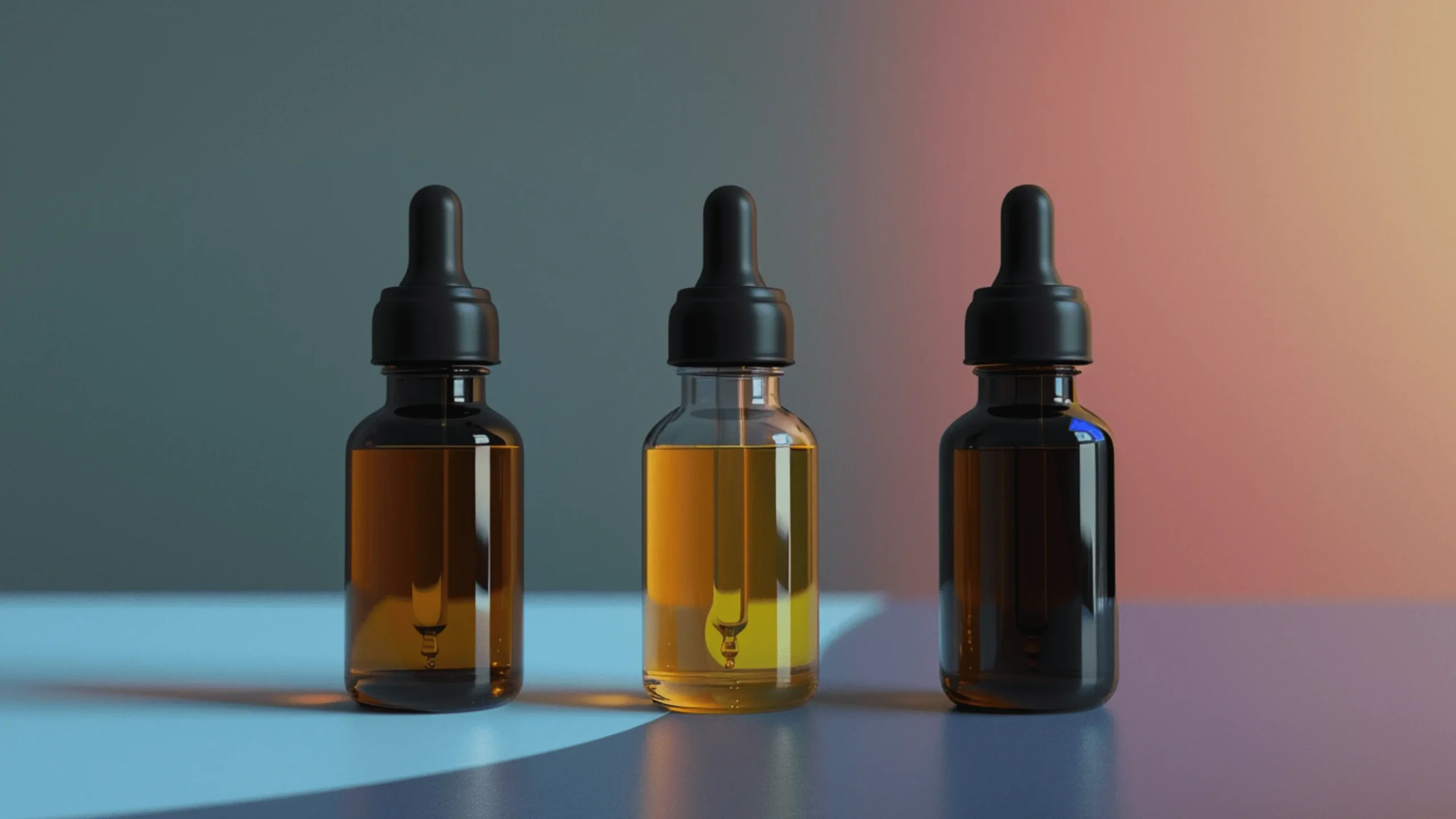As the CBD market expands across Europe, understanding the various types of CBD oil becomes crucial for both consumers and business representatives. The main types of CBD oil are:
1. Full-spectrum: contains all hemp plant parts with less than 0.2% THC.
2. Broad-spectrum: includes most plant compounds but no THC.
3. Isolate: pure CBD without other cannabinoids or THC.
The European CBD report conducted in 2023 by Prohibition Partners’ reflects the increasing acceptance in Europe, showing that over 15% of Europeans have tried CBD products, acknowledging their benefits for issues like sleep, anxiety, and pain relief.
However, a significant part of CBD users, as well as the business people, remain unclear about the differences among types of CBD oil. Knowing these differences is essential for businesses wanting to succeed in a competitive CBD market.
What are cannabinoids?
Exploring the types of CBD oil reveals a complex world of cannabinoids – more than 100 naturally occurring compounds in the Cannabis sativa plant that impact the human endocannabinoid system (ECS), which is a biological network consisting of cannabinoid receptors and endocannabinoids, responsible for important functions in human body like sleep, mood and appetite.
Each cannabinoid, from CBD and THC to lesser-known ones like CBG and CBN, binds to specific receptors in the body – CB1 in the nervous system and CB2 in the immune system, influencing various physiological responses. This interaction underlines the diverse effects cannabinoids can have, from psychoactive effects associated with THC to the non-psychoactive, therapeutic benefits of CBD.
How does CBD interact with the endocannabinoid system (ECS)?
Among the various cannabinoids, CBD stands out due to its significant impact on the ECS. CBD binds to ECS receptors, boosting the system’s ability to maintain homeostasis (the body’s way of keeping everything in balance) and stabilize internal functions despite external changes. CBD and ECS interact while promoting relaxation and mental calm. The ongoing research continues to explore how CBD oil and other CBD products achieve this balance as a powerful remedy for body, mind, and soul.
The 3 types of CBD oil and their differences
Within the different types of CBD oil, three primary categories exist, each offering specific compositions and effects.
- Full spectrum CBD oil includes all components of the hemp plant, with a THC content normally below 0.2%, enhancing therapeutic benefits through the entourage effect, where combined compounds of the hemp plant work synergistically;
- Broad spectrum CBD oil also provides the entourage effect but the THC in it is completely removed, making it suitable for users like pregnant or breastfeeding women and professional athletes or anyone who wish to avoid even the smallest amount of THC;
- CBD isolate contains only CBD and is preferred for its purity, though it may lack the enhanced effects typical to other types of CBD oil.
These differences in types of CBD oil comply with different user preferences and legal restrictions, emphasizing the importance of understanding these specifics for an effective market positioning.
Full-spectrum CBD oil
Full-spectrum CBD oil is known for retaining all components of the hemp plant, making it a rich source of cannabinoids like CBD, CBG, and CBN, as well as terpenes and flavonoids which are not only responsible for the distinct aromas and flavors but also contribute antioxidant properties that enhance the CBD oil’s health benefits.
Although full-spectrum CBD oil contains THC, the amount of it is set to be less than 0.2% in many European countries. The presence of cannabinoids and other beneficial compounds in full-spectrum CBD oil ensure the entourage effect, where the combined action of the CBD oil’s components potentially increases its therapeutic benefits. This makes full-spectrum CBD particularly tempting to consumers looking for effective natural treatments and provides a compelling CBD product option for businesses in the European CBD market.

Broad-spectrum CBD oil
Broad-spectrum CBD oil also includes many cannabinoids, terpenes and flavonoids. However, this type of CBD oil undergoes an additional extraction process to eliminate THC while preserving other beneficial cannabinoids and compounds. Broad spectrum CBD oil is totally THC-free, so this makes it an appealing choice for consumers seeking the benefits of the entourage effect but wanting to avoid even the small amount of THC.
CBD isolate
CBD isolate is the purest form of CBD, completely isolated from other cannabinoids, terpenes, and compounds found in the hemp plant. This type of CBD oil contains no THC or any other naturally occurring elements of the hemp plant. The unique extraction process used for CBD isolate ensures that it consists only of CBD, without any of the entourage effect seen in other types of CBD oil. This makes CBD isolate ideal for consumers who require pure CBD and seek the effects of CBD in its most concentrated form.
Entourage effect explained
The entourage effect is an important concept in understanding the efficacy of various types of CBD oil. This theory suggests that the combination of over 400 compounds in the hemp plant, including cannabinoids like CBD and THC, along with terpenes and flavonoids, works more effectively together than any single compound alone. Much like a sports team benefits from the diverse skills of all its players, each hemp compound contributes uniquely, enhancing the CBD’s overall therapeutic impact.
Different types of CBD oil: which one is the most effective?
The most suitable type of CBD oil varies individually, largely depending on one’s needs and the desired effects. Both full spectrum and broad spectrum types of CBD oil have a complex design of cannabinoids, terpenes, and flavonoids from the hemp plant, potentially amplifying the therapeutic effects through interaction with the ECS.
For those required to undergo drug testing or preferring to avoid even the small amounts of THC, CBD isolate or broad spectrum CBD oil may be the best option. However, the full spectrum CBD oil is considered to be the most effective because it contains all the natural compounds found in the hemp plant.
How are different types of CBD oil made?
The production of different types of CBD oil begins by harvesting mature hemp crops, which are abundant in resin that is rich in cannabinoids and terpenes. This process involves separating the valuable phytochemical compounds from the hemp plant matter – a critical step that influences the purity and types of CBD oil produced.
Several methods are employed to isolate this resin, each affecting the final product’s variety of cannabinoids and the therapeutic effects of the CBD oil. These extraction techniques ensure that the full potential of the cannabinoids is used, affecting how the different types of CBD oil interact with the ECS to deliver health benefits.
How is full-spectrum CBD oil made?
The production of full-spectrum CBD oil aims to extract all natural compounds from the hemp plant while preserving the integrity of CBD and other cannabinoids. This method results in a CBD oil rich in diverse cannabinoid content, which can enhance the therapeutic effects associated with the different types of CBD oil.
The supercritical CO2 extraction method is known for its ability to produce high quality full spectrum CBD oil because it is effective in maintaining the purity of cannabinoids.
This process involves placing carbon dioxide under high pressure to liquify it, which is then used to leach properties from the plant material. Upon releasing the pressure, the CO2 reverts to its gaseous state, leaving behind the rich, full of cannabinoids extract. The CO2 extraction is crucial for creating full spectrum CBD oil, known for its potent effects and ability to leverage the entourage effect.
How is broad-spectrum CBD oil made?
The creation of broad-spectrum CBD oil involves a practical cleansing process that starts with a full spectrum CBD extract.

Manufacturers utilize a technique known as chromatography to selectively remove THC while preserving the other valuable cannabinoids like CBD, CBG, and CBC from broad spectrum CBD oil. This method ensures that the beneficial effects of the remaining cannabinoids are maintained, making broad-spectrum one of the preferred types of CBD oil for those seeking the benefits of CBD without the trace of THC. The result is a premium quality broad spectrum CBD oil that retains a rich profile of cannabinoids.
How is CBD isolate made?
Producing CBD isolate involves both simple and complex techniques, reflecting the nuances of extraction important to achieving a pure CBD. Although there is no standardized method for extracting CBD isolate, the most prevalent methods include CO2 and ethanol extractions, each favored for its efficiency in isolating cannabinoids from hemp flowers.
Supercritical CO2 extraction is notably effective for its precision in removing all cannabinoids and terpenes. Ethanol extraction, while less technologically advanced, is equally valued for its simplicity and safety in separating CBD and other cannabinoids. Following extraction, all types of CBD oil undergo winterization, a crucial step where extra cannabinoids and terpenes are further removed to produce pure CBD isolate. This process results in a CBD isolate without THC and other cannabinoids, highlighting the potent effects of CBD in its most concentrated form.
Different types of CBD oil and CBD terminology
The table below provides a summary of common terms used in discussions about different types of CBD oil:
| Term | Meaning |
| CBD | CBD is a compound from the C. sativa plant that does not produce the high commonly associated with cannabis. |
| THC | THC is the psychoactive compound in C. sativa that causes psychoactive effects. |
| Cannabinoids | Cannabinoids are naturally occurring compounds found within the hemp plant, with CBD and THC being the most popular. |
| Terpenes | Terpenes are compounds that give the C. sativa plant its distinct aromas, which may also offer additional health benefits. |
| Full-spectrum CBD oil | Full spectrum CBD oil includes all natural compounds of the hemp plant, with THC levels not exceeding 0.2% to meet standards in many European countries. |
| Broad-spectrum CBD oil | Broad spectrum CBD oil contains various natural compounds from the hemp plant, but THC is completely removed in it. |
| CBD isolate | CBD isolate is the purest form of CBD, free from other cannabinoids and terpenes, containing 0% THC. |
| Certificate of analysis (COA) | COA is a crucial document provided by reputable CBD manufacturers that details third-party testing results for their CBD products. |
Different forms of CBD products
CBD products are available in several forms, adapting to a wide range of customer preferences. The main types of CBD products include:
- CBD oils;
- CBD gummies;
- CBD topicals like creams and balms, each offering unique effects and benefits.
Additionally, CBD extends into capsules, vaping liquids, and mist sprays, broadening its application across different lifestyles. Companies even customize specific types of CBD oil-based products for pets, reflecting the versatility of CBD.
CBD oils
You should note that according to the guidelines from the European Commission, CBD oil is not recognized as a health supplement and should only be used topically in many European countries. Entrepreneurs entering the CBD market must ensure that their CBD oils are marketed for external use only and not for sublingual (under the tongue) application, aligning with current regulatory standards.
The dose and potency of CBD oil can vary, starting at doses as low as 5 or 10 milligrams. Business representatives should note that understanding the effects and proper usage of CBD oil is crucial for creating their own CBD brand and market entry.
CBD topicals
CBD topicals, such as creams and lotions, are applied directly to the skin and vary widely in potency and offer a range of benefits primarily centered around localized relief and skin health. For those entering the CBD market, it’s essential to understand that CBD topicals should clearly list all ingredients to prevent allergic reactions and ensure consumer safety. Following the manufacturer guidelines is crucial for regulatory compliance.

CBD gummies
CBD gummies are an edible form of CBD, varying in shape, flavor, and potency, with doses often starting at 5 mg. For market entrants, it’s crucial to feature products that have undergone third-party testing to verify their cannabinoid content and effects, ensuring transparency and building trust with consumers. You should always remind your customers that starting with lower doses is recommended.
The many forms of CBD
| CBD oils | CBD topicals | CBD gummies | |
| What are they | CBD-infused oils and tinctures | CBD-infused creams, lotions, salves, balms or patches | CBD edibles (similar to regular gummies) |
| How most people take them | under the tongue/externally | apply to the skin | orally |
| Pros | fast onset if held under the tongue rather than swallowed | provide direct relief to a specific spot on the body | discreet, easy to dose |
| Cons | some people don’t like the taste | difficult to dose | longer onset, also CBD gummies may melt |
Safety and side effects of CBD
While generally considered safe, CBD can cause slight side effects like:
- Fatigue;
- Diarrhea;
- Drowsiness;
- Changes in appetite.
CBD brand owners should advise consumers to consult with a doctor before using CBD, especially if taking other medications, like blood thinners or antidepressants, due to potential interactions.
A 2020-2022 review indicated that while most CBD users experience minimal or no side effects at all, the variability in CBD potency and dosages across studies makes it challenging to identify effective doses for specific conditions.
A summary of different types of CBD oil
We hope that this article has helped you learn more about the different types of CBD oil and decide which one might be best for your customers’ needs. Given the nature of the CBD industry, understanding the different types of CBD oil, including CBD isolate, broad spectrum CBD oil, and full spectrum CBD oil, is crucial as you enter the CBD market and select CBD products. These types of CBD oil come in various product forms like CBD topicals, gummies etc.
Remember, full research is important to find the right partner that matches your specific requirements, enhancing the potential benefits your customers may derive from different types of CBD oil.
Featured Articles

Blog Home
No Content



